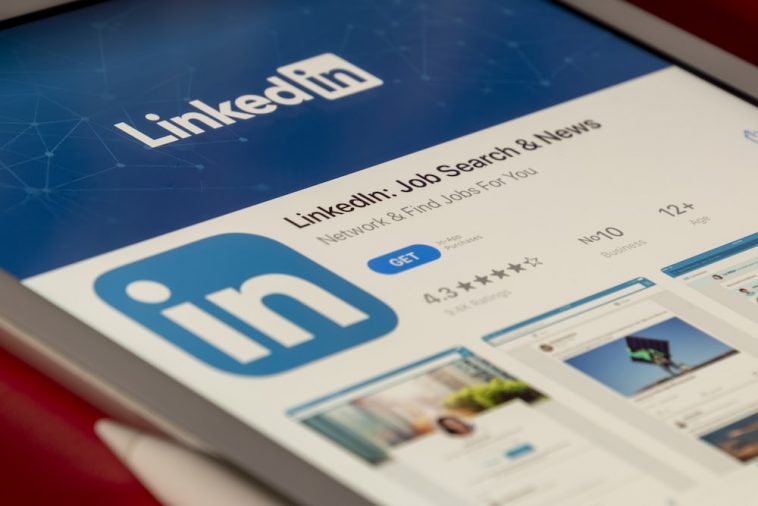Introduction.
LinkedIn is more than just a place to upload your resume. It’s a platform full of possibilities for freelancers who want to find clients, build their brand, and grow their business. If you’re a freelancer trying to stand out, LinkedIn might be the tool you’ve been missing.
With over 900 million members in 200+ countries, it’s where professionals go to connect, share insights, and, importantly, find skilled individuals for their projects.
Here, I’ll walk you through how you can use LinkedIn to grow your freelancing career, step by step. Whether you’re just starting or looking to take things to the next level, this guide has you covered.
Why LinkedIn Matters for Freelancers
LinkedIn isn’t just another social media platform—it’s a professional network. This means the audience is often more focused and intentional, making it ideal for freelancers looking to connect with decision-makers and showcase their expertise.
Here are some of the reasons why LinkedIn is worth your time:
- Visibility: Potential clients can discover your profile when searching for freelancers with your skills.
- Credibility: A strong LinkedIn profile acts like a portfolio, showing your experience, skills, and endorsements.
- Networking: Building relationships with industry professionals can lead to collaborations, recommendations, or direct projects.
- Job Opportunities: Many businesses post freelance gigs directly on LinkedIn, and the platform’s algorithms can recommend jobs suited to your profile.
How Do I Get Started on LinkedIn as a Freelancer?
1. Create a Professional Profile
Your LinkedIn profile is like your online business card. It’s often the first impression potential clients have of you, so it needs to look polished and professional.
- Profile Picture: Use a clear, high-quality photo where you’re dressed appropriately for your industry.
- Headline: Think of this as your elevator pitch. Instead of just saying “Freelance Writer,” try “Freelance Writer Specializing in SEO and Content Strategy for Small Businesses.”
- About Section: Use this space to tell your story. Highlight your skills, past achievements, and what makes you different. Speak directly to the type of clients you want to attract.
- Experience and Skills: List relevant work experience and skills. Be specific—clients want to see what you’ve done and what you can do for them.
2. Build Connections
Connections are the backbone of LinkedIn. The more people you’re connected with, the broader your reach. Start by:
- Adding past colleagues, classmates, and industry professionals.
- Joining LinkedIn Groups related to your industry.
- Sending personalized connection requests. Mention how you know the person or why you’d like to connect.
3. Share Content Regularly
Posting on LinkedIn keeps you on people’s radar. Share content that’s relevant to your freelancing niche, like:
- Articles or blogs you’ve written.
- Insights or tips related to your expertise.
- Success stories from past projects (with permission from clients).
- Comment on trending topics in your industry.
Consistency is key. Even posting once a week can keep your profile active and visible.
4. Use LinkedIn’s Job and Services Features
LinkedIn has specific features to help freelancers find work:
- Open to Work: Add this to your profile to signal you’re open to new projects.
- LinkedIn Services Page: Create a dedicated page showcasing the services you offer.
- Job Search: Use filters like “freelance,” “contract,” or “remote” to find gigs.
5. Engage With Others
Comment on posts, join discussions and share useful insights. This isn’t just about getting noticed—it’s about building relationships and showing your expertise.
Tips to Stand Out on LinkedIn
- Ask for Recommendations: Reach out to previous clients or colleagues and ask them to leave a recommendation on your profile. These reviews add a layer of trust for potential clients.
- Optimize Your Profile for Search: Use keywords related to your skills and industry throughout your profile. For example, if you’re a graphic designer, include terms like “branding,” “illustration,” or “logo design.”
- Be Active: Log in regularly, respond to messages promptly, and keep your profile updated.
- Showcase Work Samples: Use the Featured section to upload projects, articles, or links to your portfolio.
Common Challenges Freelancers Face on LinkedIn (And How to Solve Them)
- Getting Noticed: If your profile isn’t optimized or you’re not posting regularly, it’s easy to get lost. Focus on improving these areas to boost visibility.
- Reaching Decision-Makers: If you’re not sure who to contact, use LinkedIn’s search filters to find professionals with titles like “Marketing Manager” or “Content Strategist.”
- Standing Out Among Competitors: Be authentic. Share your unique perspective and show how you bring value to your clients.
FAQs
1. Is LinkedIn worth it for freelancers?
Absolutely. LinkedIn is one of the best platforms to find professional opportunities and connect directly with potential clients. The key is consistency and presenting yourself in a way that shows your value.
2. How much time should I spend on LinkedIn?
It depends on your schedule, but even 15–30 minutes a day can make a difference. Use that time to engage with posts, connect with people, and look for opportunities.
3. Can I find long-term clients on LinkedIn?
Yes! Many freelancers use LinkedIn to build long-term relationships. Once you impress a client, they may recommend you to others or bring you on for more projects.
Conclusion
LinkedIn is a powerful tool for freelancers when used effectively. It’s not just about finding work—it’s about building a personal brand, connecting with the right people, and creating opportunities.
What’s stopping you from diving into LinkedIn and giving your freelancing career a boost? Have you tried using LinkedIn to find work yet, or do you plan to start now?





GIPHY App Key not set. Please check settings